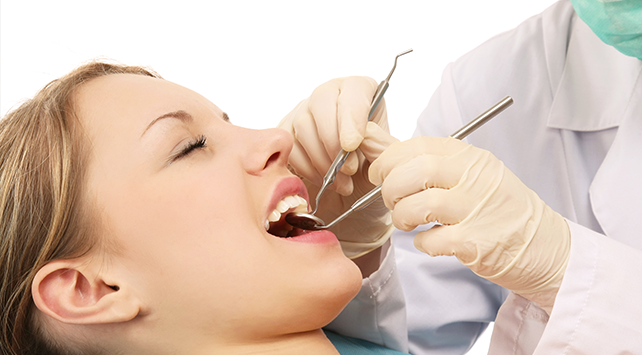Neuroscientists study brain activity during dental visits to reveal why people are actually scared of visiting the dentist.

If you have a fear of visiting the dentist, you’re certainly not alone, the stats tell us that around one in five people suffer from some form of dental anxiety.
Why? Many people have preconceived ideas and feelings about the dentist. They believe a visit to the dentist will likely involve a great deal of drilling, scraping and pain without receiving any good explanation of why it needs to happen
These preconceived ideas arise from a number of genetic and environmental factors. For example, a child who grows up in a house with parents who constantly express their own dental anxieties is placed at a much greater risk of suffering the same fears.
Modern dentistry and technological advancements mean visiting the dentist no longer needs to be a traumatic experience. So why are people still so terrified by the thought of visiting the dentist?
Studies have shown that the anxiety of visiting the dentist is actually what triggers the pain receptors in the brain. This means that a patient who fears visiting the dentist is more likely to have a painful experience than a non-anxious patient.
Modern studies and neuroscience have broken this down a step further by comparing the brain activity differences between different groups of patients in response to dental sounds and dental treatments.

What the studies have revealed…
For patients who suffer little to no dental anxiety, dental treatment and dental sounds (drill, scraping e.g.) trigger a large activity in the left and right superior temporal gyri – the primary auditory areas of the brain.
This was not the case for more anxious patients. When met with the same sounds and treatment, anxious patients saw a more intense response in the left caudate nucleus, an area of the brain responsible for learning and remembering sounds.
So what does this mean?
Patients in the low-fear group acknowledged the dental sounds and experience, but on a more temporary level. Compare this with anxious patients who associated the same experience with past pain and fear. The greater perceived pain translates to real pain.
How to mitigate your own dental fears
You need to change the way your brain responds to dental treatment. This might sound a little complicated but it’s not actually that hard to achieve.
Take learning to ride a bike as an example. If you have a bad fall during the early learning stages, you might find it hard to get back on the bike. When you sit on the bike your brain immediately associates the activity with pain. If you give up on riding the bike, your brain will always associate the activity with pain, but if you persevere and learn the skill, the fear eventually subsides.
If you fear the dentist, it’s most likely related to past pain and discomfort, or because something or someone has convinced you it is more painful than it really is.
Visit the dentist for a check-up and discuss your dental anxieties. A good dentist will take the time and care to ensure the treatment runs as smoothly and gently as possible.
The next time you need to visit the dentist you will experience less anxiety, less fear and less pain.

Don’t give dental anxiety space to grow
For people who avoid visiting the dentist because of dental anxiety, a small toothache has the potential to turn into a much greater issue. When treatment is no longer avoidable, what could have been a simple and painless procedure becomes much more extensive and complicated. This experience is exactly what cultivates dental fear and anxiety.
Gentle and Caring Dentistry Maroubra
Here at Gentle and Caring Dentistry we aim to provide everyone with the confidence and ease to achieve a beautiful and healthy smile. This includes changing a patient’s perspective from never before feeling comfortable in a dental chair to actively and confidently looking after their smile and enjoying their time at the dentist.
For more information about the pain-reducing technology and methods we work with at our Maroubra practice, or to make an appointment, please get in contact with us.
https://youtube.com/watch?v=X4n7h4OhonQ%3Ffeature%3Doembed





0 Comments